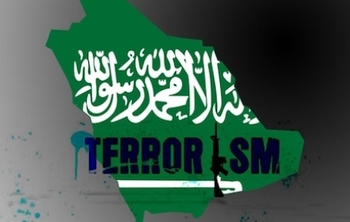The United States is protecting the House of Saud and the Kingdom’s royal family i exchange for a deal that tends to let Americans control the Middle East oil, says an American author in a video released by the Persian Gulf Studies Center.*
Based on the deal, the Saudi rulers have agreed that they will never ever sell oil for anything other than US dollars, John Perkins says elaborating on the subject of his book titled “Confessions of an Economic Hit Man”.
What we want to do, after all, is gaining control over the Middle East and over the oil in the Middle East, Perkins says referring to Washington’s involvement in the region.
He says the so-called US hit men years ago came up with a plan to achieve this end and that they knew the plan had to involve Saudi Arabia.
We knew that the House of Saud and the royal family was corrupt and corruptible, he says.
And this is very, very important; they [the Saudis] agreed that, in return for the US support and holding t power, they would never ever sell oil for anything other than US dollars.
And they also agreed to return almost all the money they made from selling oil to the United States invested in the US government securities, the American author says.
And the US government has used interests gained from those securities to hire US companies to modernize the Saudi Arabia and westernize the kingdom, he says.
The history-making, incredibly powerful deal that we struck with Saudi Arabia let Washington put the dollar on the oil standard.
You cannot buy oil on the oil market for other than anything but the US dollars, Perkins says.
And we agreed to keep the House of Saud in power, he says.
But what the so-called economic hit man and perhaps his friends in the Persian Gulf Studies Center might have never imagined was that the “corruptible” House of Saud would use the tsunami of petrodollars to promote the ideology of Wahhabism possessed by the Saudi rulers and the new breed of terrorists they have promoted.
The atrocities committed by the terrorists are spilling over today beyond the Middle Eastern frontiers to affect the lives of many across the world; many whose ideologies do not necessarily correspond with that of the Wahhabis, and that is exactly what the Wahhabis exploit to justify their wholesale slaughter of resistant populations under the Takfiri banner and after all to promulgate the so-called puritan Islam and Salafi piety.
Western countries led by the US now have to pay the price for their backing of the House of Saud as the kingdom’s use of petrodollars to promote extremism is going to backfire for years to come.
It is thought that more than 100 billion dollars have been spent on exporting fanatical Wahhabism to various much poorer nations worldwide, writes the Huffington Post.
The most recent terrorist attack in the French city of Nice left more than 84 people killed and scores more injured.
This is while the people in the Middle East are dying on a daily basis in the terrorist attacks.
Yet, the Saudi Wahhabis seem reluctant to abandon their support for the terrorists.
In fact, they are exploiting Takfiri terrorists like Daesh to stay in power and guarantee a control over the Arab states and the region.
The big powers, however, continue coddling them as under the chaos sponsored by the Saudis, the pillage of the regional resources could be done more effectively.
Now that the US Congress is considering a classified report on the Saudi involvement in the September 11, 2001, terrorist attacks the White House remain to be rebuffing the report.
In a press briefing on Friday White House Spokesman Josh Earnest appeared to reject the Saudi involvement in the 9/11 attacks on the US soil that left around 3000 people dead.
The 28 pages report contains no new evidence that Saudi Arabia played a role in the 9/11, 2001, attacks, Earnest said.
According to Perkins, if Washington manages to control the Middle East oil it will ultimately control its potential global rivals.
A lot of oil from the Middle East is used by Europe, China and Japan and if we control the Middle Eastern oil we control, we control our biggest, potential competitors; Japan, China and Europe, he says.
Yet, the calculations by the big powers seem to be flawed as long as they turn a blind eye on what are in fact the ramification s of their own actions.
* The Persian Gulf Studies Center is an Iranian NGO acting as a scientific database for defending identity, security and history of the geopolitical area of Persian Gulf.
By Reza Bahar, Foreign News Desk, IRNA
 Mouood Mouood English Edition
Mouood Mouood English Edition




